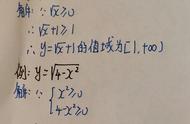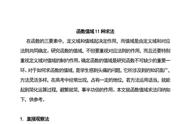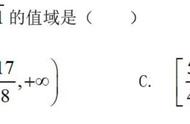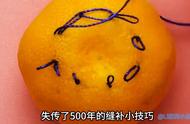
21.斯里兰卡早餐
Waduri: Okay, Danu. Now, let's talk about what do you have in Sri Lanka for breakfast, lunch and dinner.
威杜里:好,达努。我们来谈谈斯里兰卡的早午晚三餐。
Danu: Sure Widuri. So in Sri Lanka, I will talk about my breakfast first.
达努:好的,威杜里。首先我们来说斯里兰卡的早餐。
Waduri: Okay. Breakfast.
威杜里:好,早餐。
Danu: So in Sri Lanka, there are different kinds of breakfast menus for Sri Lankans. For example, we eat so much grains, nuts, and we eat rice as well. But for rice, the special thing in Sri Lanka is we cook milk rice.
达努:斯里兰卡有多种早餐。举例来说,我们早餐吃谷物、坚果等,当然我们也吃米饭。不过就米饭来说,斯里兰卡特别的地方在于我们做乳米。
Waduri: Milk rice.
威杜里:乳米。
Danu: Do you know how do we cook milk rice?
达努:你知道我们怎么做乳米吗?
Waduri: No, but it sounds interesting.
威杜里:不知道,听起来蛮有趣的。
Danu: Yes. We put coconut oil and coconut milk in the cooked rice and we make it milk rice. And we eat that milk rice with a special paste of chilies and dried fish. It's really delicious and really healthy. And apart from that, we have fruits and salads as well. For example, Sri Lanka is a tropical country and we have many kinds of different fruits all around the area. So for example, oranges, star fruits, mangosteen, bananas, are the most popular fruits for breakfast menu.
达努:对。我们把椰子油和椰奶放进煮好的米饭中,这样就制成了乳米。我们用乳米搭配一种用辣椒和鱼干制成的特殊酱料食用。这道菜不仅好吃,而且很健康。除了这些,我们的早餐也有水果和沙拉。斯里兰卡是热带国家,我们有很多种水果。举例来说,橙子、杨桃、山竹和香蕉是早餐餐桌上最受欢迎的水果。
Waduri: Oh, interesting. So that chili paste, it means spicy? That milk rice will be spicy?
威杜里:哦,有意思。你刚提到的辣椒酱,是很辣吗?那道乳米是辣的吗?
Danu: Yes, because of the coconut milk, it's a bit sweet but at the same time because of the chili paste, it's hot.
达努:对,因为里面有椰奶,所以是甜的,而我们又加了辣椒酱,所以也有辣味。
Waduri: Wow.
威杜里:哇哦。
Danu: So you can adjust your spiciness as you wish.
达努:你可以根据自己的口味调整辣度。
Waduri: Oh so, you eat spicy food in the morning. Then what about lunch?
威杜里:哦,所以你们早上吃辛辣的食物。那午餐呢?
Danu: Oh for the lunch, it's usually everybody eats rice and curry. But in Sri Lanka, rice and curry doesn't mean just rice and one dish of curry. We usually make three to four dishes. And it might be fish curry, some vegetables, and another vegetable salad. For example, the other vegetable curry might be cabbage while the salad might be some homegrown leaves. Very healthy food.
达努:哦,午餐通常所有人都吃米饭和咖喱。不过在斯里兰卡,米饭和咖喱并不意味着只有米饭和一道咖喱。我们通常会做三四道菜。可能是咖喱鱼、蔬菜咖喱和蔬菜沙拉。比如,蔬菜咖喱可能是用甘蓝做的,而蔬菜沙拉是用自家种的菜叶做的。都是非常健康的食物。
Waduri: Wow. Another healthy food. So you have salad for both breakfast and lunch.
威杜里:哇哦。又一道健康美食。你们早餐和晚餐都吃沙拉。
Danu: Yes, it depends. So you can – some people have both for breakfast and lunch. But usually, it's for lunch, we have a salad of leaves.
达努:嗯,这要视情况而定。有些人早餐和午餐都吃沙拉。不过通常,沙拉是午餐吃的,我们会做菜叶沙拉。
Waduri: Is that what you always have at your school and home?
威杜里:这是你在学校和家里经常吃的食物吗?
Danu: Usually, my mom makes my food for me to take to school. So my parents, they don't like – they don't want me to eat from outside because it's healthier to eat home. So my mom makes sure that I take proper food to school. So basically, yes, I eat my home made food.
达努:通常我妈妈为我准备带去学校的食物。我父母不想让我在外面吃饭,因为他们认为在家吃饭更健康。所以我妈妈要确保为我准备好食物带去学校吃。一般来说,我都吃自家做的饭。
Waduri: So she makes sure you eat your salad, right?
威杜里:她要确保你有吃沙拉,对吧?
Danu: Yes. She makes sure I eat my salad.
达努:对。她确保我能吃到沙拉。
Waduri: Nice. Then what about dinner?
威杜里:真好。那晚餐呢?
Danu: For dinner. For dinner, it's a very simple dish. In Sri Lanka, in our culture, we say that you should eat like a king for breakfast. Eat like a prince for the lunch. And eat like a beggar for the dinner. That's because of the healthy lifestyle we follow. So for dinner, it might be a simple dish like bread and some gravy or another dish called pittu.
达努:晚餐。晚餐的话,一般我们会吃简单的饭菜。在斯里兰卡文化中,我们经常说,早餐要吃得像皇帝,午餐吃得像王子,而晚餐则吃得像乞丐。这是我们所遵循的健康生活方式。所以晚餐我们通常吃面包、调味肉汁或pittu等简单食物。
Waduri: Pittu?
威杜里:Pittu?
Danu: Yes.
达努:对。
Waduri: What is that?
威杜里:那是什么?
Danu: Pittu is made with grounded coconuts and flour. You mix it. And you boil it. You steam it. Steam-boil it. So it becomes a very simple food, and you put some coconut milk on it, and you'll eat it.
达努:Pittu是用椰子和面粉做的美食。把椰子和面粉混合在一起蒸煮。这样就制成了一道简单的美食,可以在上面放一些椰奶食用。
Waduri: Is it sweet?
威杜里:是甜的吗?
Danu: You can make it sweet and you can make it hot depending on what ingredients do you use. So in Sri Lanka, we use lots of different spices, so depending on what spices you use, you can change the flavor as well.
达努:可以做成甜味的,也可以做成辣味的,这取决于你用什么原料。我们斯里兰卡用各种调味料,所以依据你使用的调味料,你可以做成各种口味。
Waduri: Wow. Interesting. It seems like you have a lot spices in Sri Lanka. And then what about snack time. Do you have snack time?
威杜里:哇哦。有意思。看起来斯里兰卡有很多调味料。那点心时间呢?你们有点心时间吧?
Danu: Yes, definitely. We have a snack time in the evening. For example, from 4:00 to 6:00 PM, we usually have tea.
达努:当然有了。我们在黄昏时分有点心时间。通常在下午4点到6点之间,我们会喝茶。
Waduri: Tea?
威杜里:茶?
Danu: Milk tea with some cookies.
达努:享用奶茶和饼干。
Waduri: Oh nice.
威杜里:哦,不错。
Danu: That's like family tea time. So we sit together. We have some cookies, maybe some bananas, and we drink milk tea. Have you tried Sri Lanka's tea?
达努:这就像家庭茶点时光。我们会坐在一起,享用饼干、香蕉和奶茶。你喝过斯里兰卡的茶吗?
Waduri: I think I remember—what is it again? Ceylon tea.
威杜里:我想我记得……那叫什么来着?锡兰茶。
Danu: Yes, it is Ceylon tea.
达努:对,锡兰茶。
Waduri: Ceylon tea.
威杜里:锡兰茶。
Danu: Ceylon tea.
达努:锡兰茶。
Waduri: Ceylon tea.
威杜里:锡兰茶。
Danu: Yes.
达努:对。
Waduri: So you mix the milk with that Ceylon tea.
威杜里:你们把奶加进锡兰茶里。
Danu: That's right. We mix the milk with Ceylon tea.
达努:没错。把奶和锡兰茶混合起来。
Waduri: Interesting. I want to try it.
威杜里:有意思。我想尝尝。
Danu: You should try it. It's very delicious.
达努:你应该品尝一下。非常美味。
Waduri: Okay. Thank you, Danu.
威杜里:好。谢谢你,达努。
Danu: Thank you, Waduri.
达努:谢谢,威杜里。

22.印尼早餐
达努:好,威杜里。你来自印度尼西亚。
Widuri: Yes.
威杜里:对。
Danu: So I would like to hear about some typical Indonesia food. Let's talk about breakfast.
达努:我想了解一下印尼传统食物。我们来谈谈早餐吧。
Widuri: Breakfast. Okay. Let me see. Actually, Indonesian eat rice. We eat rice every day, three times a day for breakfast, lunch and dinner. But there is no specific and typical breakfast actually in Indonesia. For example, in my house, my mom will prepare both bread and rice. And sometimes, we also have porridge. But usually, people will prefer rice rather than bread. But then, we will eat that and drink milk every morning.
威杜里:早餐。好。我想想。印尼人吃米饭。我们每天都吃米饭,早餐、午餐和早餐,每顿饭都吃米饭。印尼没有特色早餐和典型早餐。以我们家为例,我妈妈会准备面包和米饭。有时,我们早上也吃麦片粥。通常,相比面包来说,人们更喜欢米饭。不过我们家的早饭有米饭和面包,而且我们每天早上都喝牛奶。
Danu: So what is your favorite breakfast?
达努:你最喜欢的早餐是什么?
Widuri: My favorite one, I prefer the lighter one, which is bread than strawberry jam, and of course, the milk.
威杜里:我最喜欢的早餐,我更喜欢清淡一些的早餐,面包搭配草莓酱,当然还有牛奶。
Danu: Okay. I see. So what about lunch, Widuri, in Indonesia?
达努:好。我知道了。威杜里,那印尼午餐一般吃什么?
Widuri: But lunch, of course, I will eat rice. In cafeteria, at my school, we have a lot of menus, rice menus. For example, fried rice. That one is very famous in Indonesia. And then rice with curry, rice with soup, rice with chicken, fried chicken. There are a lot of menus actually in Indonesia. But basically, of course, we eat rice.
威杜里:午餐,当然我也会吃米饭。我们学校的食堂有很多用大米做的菜肴可供选择。比如,炒饭。这道菜在印尼非常出名。还有咖喱饭,汤饭,鸡肉炒饭,炸鸡等。印尼有很多美食。不过,基本上来说我们的饮食以大米为主。
Danu: Okay. That's interesting. Do you have any snacks during the evening time?
达努:好。这真有意思。你们在傍晚时分吃点心吗?
Widuri: That's not really common actually. We don't really have snack time or tea time like that in Indonesia. But if you want to have snacks, then the snacks will be traditional foods from Indonesia like cakes.
威杜里:这在印尼不太常见。印尼没有点心时间或下午茶时间。不过如果你想吃点心,印尼有蛋糕等传统小吃。
Danu: So what kind of cakes are they?
达努:哪种蛋糕?
Widuri: Wow. If I mention the name, it's probably hard to remember, but the name is like kue cubit. Do you know that food?
威杜里:哇哦。如果我说名字的话,你们可能记不住,印尼的蛋糕叫kue cubit。你知道吗?
Danu: Kue cubit.
达努:kue cubit。
Widuri: Yeah.
威杜里:对。
Danu: That's interesting. That sounds very funny.
达努:有意思,听上去非常好笑。
Widuri: Yeah. It is. The cake is very small. That's why we call it cubit. It's like you pinch the cake. So small but it's very sweet. You can have chocolate toppings or green tea toppings and strawberry jam on it.
威杜里:对,没错。这种蛋糕非常小。所以我们称之为cubit。就好像把蛋糕捏扁一样。这种蛋糕虽然小小,但是很甜。你可以在上面放巧克力或绿茶,还可以涂草莓酱。
Danu: I see. So Widuri, could you talk about dinner in Indonesia?
达努:我知道了。威杜里,你能说说印尼的晚餐吗?
Widuri: Dinner. Hmm, actually, there are a lot of menus like pasta or rice again or other things. But for me and my family, we usually have fruits and salad for dinner. You know, it's healthy lifestyle.
威杜里:晚饭。嗯,实际上,印尼的晚餐选择很多,有意大利面、米饭和其他食物。不过我和我家人通常晚饭会吃水果和沙拉。你知道,这是健康的生活方式。
Danu: I see. So Widuri, you said you usually eat rice for three times a day.
达努:我知道了。威杜里,你说你一天三顿饭都吃米饭。
Widuri: Yes.
威杜里:对。
Danu: So do you eat the same rice with same side dishes or curry or soup?
达努:那你们是吃同样做法的米饭和同样的配菜吗,比如咖喱和汤之类的?
Widuri: Yeah. Usually, my mom will cook every morning and then, she will cook again in the afternoon. But usually, same menu.
威杜里:对。通常来说,我妈妈每天早上都会做饭,她下午也做饭,不过做的都是同样的食物。
Danu: Okay. Widuri, so salad and some fruits. That's interesting. Is it normal in Indonesia? Could you talk a bit about the salad and the fruits?
达努:好。威杜里,沙拉和水果。这很有趣。这在印尼常见吗?你能说说沙拉和水果吗?
Widuri: Yeah. Even though Indonesian eat rice three times a day, but my family prefers a healthier lifestyle such as salad and fruits. My friends also do that, I think, because we don't want to get fat, and fruit and salads for dinner is the best way to keep your body slim. And we usually have salad without toppings. You know, sometimes, the toppings makes you fat.
威杜里:好。虽然印尼人一天三顿都吃米饭,不过我们家更喜欢健康的生活方式,所以我们会吃沙拉和水果。我朋友也这样做,因为我们不想发胖,而晚饭吃水果和沙拉是保持身材的最佳方法。通常我们的沙拉不加配料,因为配料会让人发胖。
Danu: So what kind of salads and what kind of fruits do you eat?
达努:那一般你们吃哪种沙拉和哪些水果?
Widuri: Indonesian is tropical country. There are a lot of fruits like watermelon, apples, oranges. And then we also have srikaya. Do you know srikaya?
威杜里:印尼是热带国家。我们有很多种水果,比如西瓜、苹果、橙子等。印尼还有番荔枝。你知道番荔枝吗?
Danu: I have not heard about it before.
达努:我以前从来没有听说过。
Widuri: Then it's fruit from Indonesia. Its name is srikaya. The shape is like pineapple but it has different taste, of course. It's not sour. It's sweet. Its name is srikaya. And for salad, we eat the usual salad like lettuce and the tomatoes, something like that mixed with the fruits.
威杜里:这是一种印尼水果。名字是番荔枝。形状很像菠萝,不过味道不一样,番荔枝没有酸味。这种水果是甜的。这就是番荔枝。至于沙拉,我们通常会用莴苣和番茄来做沙拉,然后把它们和水果混合在一起。
Danu: Oh, you mix the salad with the fruits.
达努:哦,你把沙拉和水果混合在一起。
Widuri: Yes, of course.
威杜里:对,当然了。
Danu: That's interesting. So what's your favorite fruit? I mean, fruit.
达努:这很有意思。那你最喜欢的水果是什么?我指的是水果。
Widuri: My favorite fruits will be orange, I think.
威杜里:我最爱的水果是橙子。
Danu: Okay. Sounds like a healthy way to live.
达努:好。听上去你的生活很健康。
Widuri: Yeah.
威杜里:对。
Danu: That's why you have such a nice slim figure.
达努:所以你的身材才这么苗条。
Widuri: Yeah. Thank you.
威杜里:对。谢谢你。
Danu: You are welcome. Thank you very much.
达努:不客气。非常感谢你的分享。
Widuri: Thank you.
威杜里:谢谢。
23.上班着装

萨拉:约翰,你怎么看纹身和穿孔?
John: Oh. Well, I think they're okay. Personally, I have my ears pierced, and I have many tattoos. But in the professional world, different people have different ideas. So I had to make sure all of my tattoos can be covered by a t-shirt, so any person who sees me doesn't know that I have any tattoos. But I personally think tattoos are okay. So if I saw a police officer with many tattoos on her arms and her neck, I wouldn't have a problem with it. What about you?
约翰:哦。我认为那没什么问题。我有耳洞,而且我也有很多纹身。但在职场上,不同的人有不同的看法。我要确保T恤能遮住我的纹身,这样人们就不知道我有很多纹身。不过我个人认为纹身不是问题。如果我看到女警胳膊上和脖子上有很多纹身,我并不觉得那是问题。你呢?
Sarah: Do you think in the future, maybe as you and I grow up, it will become more common to go to the doctor or maybe go to the bank and you see people, and they are professional people, but they have visible tattoos or earrings? I also have a tattoo. So I think they're okay.
萨拉:你认为未来,也许在你和我都成熟以后,我们去看医生或去银行时,会看到那些职业人士露出纹身和穿孔吗?这种现象会更普遍吗?我也有纹身。所以我也认为这不是问题。
John: I agree. I think that in the future, it will be more and more commonplace to see people who have visible tattoos and piercings. Of course, right now, people are having more and more visible tattoos that are very small. But maybe in the future, tattoos will be bigger and bigger. I think it's the same with piercings. Nowadays, it's normal to see women and men who have their ears pierced. But it's still not common to see a professional working with their nose pierced or their eyebrows pierced. Maybe in the future that will be common as well.
约翰:我同意。我认为未来,看到人们露出纹身和穿孔会更普遍。当然,现在人们会露出那种很小的纹身。不过也许以后,人们露出的纹身会越来越大。我认为穿孔也是如此。现在,女性和男性打耳洞是很平常的事。不过,现在并不常见到职业人士戴鼻环或眉环。也许未来这些现象也会更常见。
Sarah: I think so. But one thing that I think won't change is professional clothing. I think these days and the future, I think a nice suit, a professional collared shirt, ironed pants – I think those type of clothes are really important for your job or for the type of job if you want a promotion. And I think in the future, we'll see people with really nice professional clothing and then they might have visible tattoos or earrings. I think your clothes show how important your job is to you.
萨拉:我也是这么认为的。不过我认为职业着装是不会改变的。无论是现在还是未来,得体的西装、职业有领衬衣、熨好的裤子等,我认为这类衣服对你的工作非常重要,如果你想升职的话,这类衣服对你的工作类型很重要。未来,我们可能看到人们穿着得体的职业着装,露出纹身和穿孔。我认为着装能显示出工作对你的重要性。
John: I see what you're saying. If I was trying to hire a lawyer and I saw two lawyers and both of them had tattoos and their ears pierced, but if one of the lawyers was wearing a suit, even if that person have tattoos and piercings, if they're wearing a suit, I would rather choose that lawyer than someone who had tattoos and piercings who was wearing a t-shirt and shorts.
约翰:我明白你的意思。如果我要聘请一名律师,我看到两名律师都有纹身,而且戴耳环,但是其中一人穿着西装,即使那个人有纹身和穿孔,可是如果他穿着西装的话,我也会选择他,而不是那个有纹身和穿孔,但是穿着T恤和短裤的人。
Sarah: Uh-hmm.
萨拉:嗯。
John: So I agree with you that the clothing is more important for professional image.
约翰:我同意你的观点,衣着对职业形象更重要。
Sarah: What do you think – these days, some of the computer companies or tech startups, the CEOs are young people and they'll go to work wearing jeans or shorts and a t-shirt. And they like to portray a casual atmosphere through their clothes. What do you think about that?
萨拉:现在有些计算机公司或科技初创公司的首席执行官是年轻人,他们会穿着牛仔裤或短裤T恤上班。他们希望用穿着营造轻松的氛围。你对此有什么看法?
John: Well, in my opinion, the environment at a job, as long as everyone working there is in the same environment, maybe they should be able to choose what kind of professional attire is appropriate inside of that company. But the problem would arise when those workers have to interact with people from another company. So if another company has a dress code where everyone is wearing suits and these two companies have to work together, there might be a problem.
约翰:在我看来,就工作环境来说,所有员工都在同一个环境,也许应该让员工选择适合公司的职业装。不过,因为这些员工要和其他公司的人接触,这样做可能会产生问题。如果其他公司有着装规定,要求员工穿西装,而这两家公司要一起工作,那可能就会有问题产生。
Sarah: It's strange that clothes seem like they're so important. The knowledge and the product should be important but I think everyone looks at the clothes and makes a judgment.
萨拉:着装如此重要其实很奇怪。知识和产品应该更重要,不过我认为所有人都会根据他人的着装去做判断。
John: Yeah. It's interesting that we all know the saying "Don't judge a book by its cover" but we can't help but do that. Everyone is judging people by what they wear, and that's not going to change.
约翰:对。有意思的是,我们都知道“不要以貌取人”这句话,可是我们却不由自主地去这样做。所有人都通过其他人的穿着来评判他们,这种情况不会改变。
Sarah: I agree.
萨拉:我同意。
















